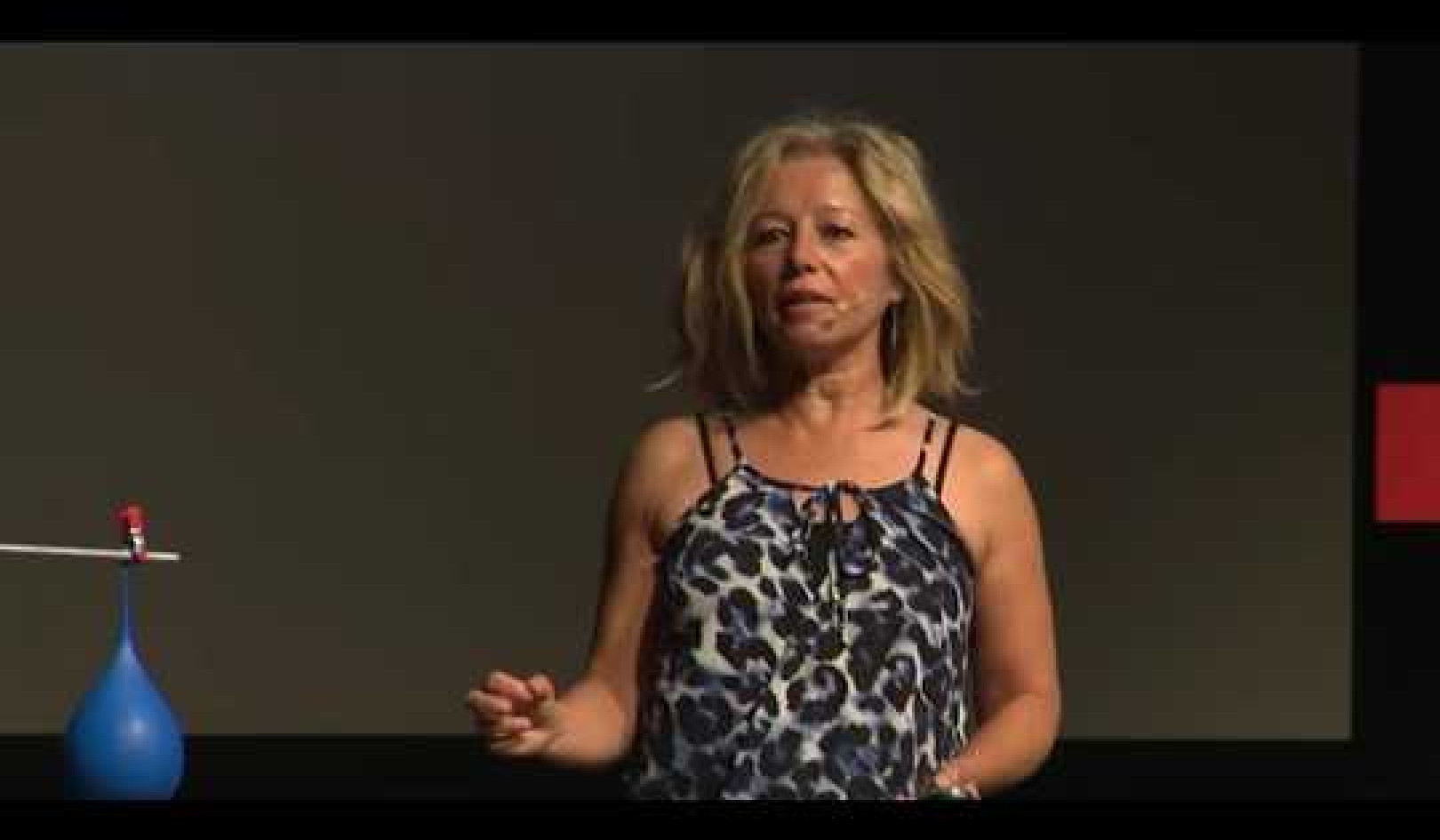
Image by Mabel Amber
Many people like to look back on history, glean from it what they can, and apply it to their everyday lives. This is done to avoid repeating past mistakes. There has been much benefit from this approach.
However, it's one thing to look at the past and it's another to live in the past. Nothing remains the same and many things from the past don't work in the present. When we try to make the old ways fit in today's culture, the consequence is culture shock.
Everything Changes
There are some basic principles that still hold true today and continue to uphold humanity. One is love, which is the essence of life and the basis of most religions.
Decisions based on a loving motivation are upheld. Along the way, there are many rules and regulations that man has fostered to uphold humanity. They appeared correct at the time they were enacted into law, but times have changed. The laws are no longer enforced like they were before. Now, they are rather unclear and nebulous. That's only part of the problem. There are so many laws, that it can be difficult to live an entire day without breaking one.
Many laws are so outdated, that they no longer apply in ways that benefit the modern populace. Even if you feel confident in the law, if you move to another location you may have the need to ascertain what the local laws are regarding a particular issue. Added to that, are rules and regulations within different structures and institutions.
Who Is Free?
Though people think of themselves as free, they are restricted by rules and regulations. The question is: What is freedom? If we think we have freedom, but we struggle and strain to conform to a preordained mode of living, is that freedom? If we live in terror that we might make a mistake and break a rule or regulation by accident, is that freedom? If we spend our time filling out forms, applications, licenses, and doing paperwork that applies to these rules and regulations, when we could be doing the things that bring us joy, is that freedom? If we give our money unwillingly to support these rules and regulations, is that freedom? Do we want these rules and regulations, or do we want freedom?
You say you want to be free; but do you? Are you willing to take on the responsibility that is inherent in freedom? Are you willing to take a stand for the things you want changed? Or, do you want others to do it for you? How free do you want to be -- barely free or completely free?
Do you see things with which you don't agree? Do you do anything about it? Now think about that. If you do nothing, you are part of what keeps that situation intact. You have the power to begin freeing things up. You've just forgotten, because it's been so long since anyone reminded you that things have changed and these are no longer ancient times. Now we're living in a time when we can regain our power.
The Answer is Within
There's a way to begin. Instead of looking at the circumstances out there and comparing it to situations that happened before, look within yourself for new solutions. Ask yourself: What would I like the outcome of this situation to be? Don't look at all the rules, regulations, people, circumstances, and things that hold it in place. Those are the old, ancient things, things that change, alter and crumble with time. Release those limiting thoughts and replace them with new, unlimiting thoughts.
The next series of questions to ask yourself are: Is this solution motivated by love? Will anybody get hurt? Who will benefit? Uplifting solutions for humanity are motivated by love and benefit all responsible people. No one would prosper without reason and no one would prosper in a way that would deplete others. A loving solution would create a situation where there is harmony and balance between those who give and those who get.
It's a win-win situation where all people will feel worthwhile. But this situation can't be achieved among people who are irresponsible. Each person needs to take his/her rightful place and do her/his job.
There are no excuses; each person has something to offer. It's healthy and healing to do what you can. By doing that you learn to trust yourself. You begin to get in touch with your own truth instead of letting others have their way. Your way is equally as valid. You have a right to voice your opinion and make changes that will affect you.
Listen to your inner self. Evaluate what you believe. Do you think you can do better? Do you think others are doing their best? Are your represented officials doing their best? Are there too many bureaucrats in the hierarchy making every effort ineffectual? Are there too many rules and regulations? Instead of making more rules and regulations, are there some that can be eliminated? Can we take a step towards becoming responsible for ourselves again?
But the questions remain: Do we want that responsibility? Are we ready for it?
It's Your Choice
If we are ready for it, now is the time to act. Now is the time to evaluate the situation and determine where our energy is best directed. You may be the person to come up with a new idea, you may be the person who adds support, or perhaps you're the one who makes it count.
No one needs to do the work alone. Now people want to work together and they want change. Now is the time to release the limitations and allow the unique thoughts and concepts to flow. Don't judge every thought and idea, simply allow them to flow and allow them to pile up as you explore and take a little from here and a little from there. Laugh and play with it, make it a light experience. Probe for the treasures that are contained within the dilemma.
Allow the ego to take a back seat. Choose the concepts which are the epitome of love. Allow this love for humanity to carry it forward.
Next, act on your choice. Make an inroad here and a crevice there. It will take the energy of many self-responsible people to restore freedom. You can't do it for another person, and you can't make them do it.
Now if we want freedom, we'll have to create it for ourselves. We cannot leave it in the hands of others unless we are sure we are clear about their motivation. Freedom is a responsibility and a choice -- your choice.
Book by this Author:
Behind the 8-ball - A Recovery Guide for Families of Gamblers
by Linda Berman.and Mary-Ellen Siegel
 Is someone you care about gambling your life away? You don't have to be a gambler yourself to suffer from the often disastrous effects of excessive gambling. Behind the 8-Ball is the must-have guide to reclaiming your financial, legal, and emotional freedom.Spouses, parents, siblings, children, friends, and coworkers of the gambler will learn how to: * Understand why some people lose control of their gambling * Recognize the compulsive gambler and realistically assess the financial and emotional damage he or she is causing you and others * Accept that you can't control someone else's gambling * Encourage the gambler to seek help * Recover from being involved with a gambler. For anyone who is or has ever been involved with someone who gambles too much, this supportive, informative volume delivers all the tools and motivation you need to rebuild your life.
Is someone you care about gambling your life away? You don't have to be a gambler yourself to suffer from the often disastrous effects of excessive gambling. Behind the 8-Ball is the must-have guide to reclaiming your financial, legal, and emotional freedom.Spouses, parents, siblings, children, friends, and coworkers of the gambler will learn how to: * Understand why some people lose control of their gambling * Recognize the compulsive gambler and realistically assess the financial and emotional damage he or she is causing you and others * Accept that you can't control someone else's gambling * Encourage the gambler to seek help * Recover from being involved with a gambler. For anyone who is or has ever been involved with someone who gambles too much, this supportive, informative volume delivers all the tools and motivation you need to rebuild your life.
More Info or Purchase the book. Also available as a Kindle edition.
About The Authors
Linda Berman, LCSW, and Mary-Ellen Siegel, LCSW, are both psychotherapists in private practice recognized for their work with out-of-control gamblers and families of gamblers as well as their presentations at conferences and on radio and television. Linda was previously the program coordinator of the Compulsive Gambling Program and Addiction Center at Westchester Jewish Community Services. Mary-Ellen is a clinical instructor in the Department of Community and Preventive Medicine at the Mount Sinai School of Medicine in New York.

Related Books:
Atomic Habits: An Easy & Proven Way to Build Good Habits & Break Bad Ones
by James Clear
Atomic Habits provides practical advice for developing good habits and breaking bad ones, based on scientific research on behavior change.
Click for more info or to order
The Four Tendencies: The Indispensable Personality Profiles That Reveal How to Make Your Life Better (and Other People's Lives Better, Too)
by Gretchen Rubin
The Four Tendencies identifies four personality types and explains how understanding your own tendencies can help you improve your relationships, work habits, and overall happiness.
Click for more info or to order
Think Again: The Power of Knowing What You Don't Know
by Adam Grant
Think Again explores how people can change their minds and attitudes, and offers strategies for improving critical thinking and decision making.
Click for more info or to order
The Body Keeps the Score: Brain, Mind, and Body in the Healing of Trauma
by Bessel van der Kolk
The Body Keeps the Score discusses the connection between trauma and physical health, and offers insights into how trauma can be treated and healed.
Click for more info or to order
The Psychology of Money: Timeless lessons on wealth, greed, and happiness
by Morgan Housel
The Psychology of Money examines the ways in which our attitudes and behaviors around money can shape our financial success and overall well-being.























